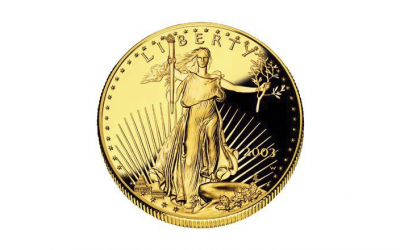With the “fiscal cliff” mess not solved but merely kicked down the road a few months, it’s a good time to summarize a few points I make in my book, The Financial Crisis and the Free Market Cure. I hope – but do not expect – that our elected representatives learn to...
Money & Banking
No Way Out
By upping the ante once again in its gamble to revive the lethargic economy through monetary action, the Federal Reserve's Open Market Committee is now compelling the rest of us to buy into a game that we may not be able to afford. At his press conference this week,...
Fedophilia: Irrational Adoration of the Federal Reserve System
Although the movement to “End the Fed” has a considerable popular following, only a very tiny number of economists—our illustrious contributors amongst them—take the possibility seriously. For the rest, the Federal Reserve System is, not an ideal currency system to be...
Central Banks Hedge Their Bets
Gold appears to be headed for an impressive price appreciation for the second half of 2012. Since the beginning of July, gold is up almost 10 over the same time frame. What is noteworthy here is that in recent months, fears of a worldwide recession have increased...
Inflation: Washington is Blind to Main Street’s Biggest Concern
Journalists, politicians and economists all seem to agree that the biggest economic issue currently worrying voters is unemployment. It follows then that most believe that the deciding factor in the presidential race will be the ability of each candidate to convince...
Intermediate Spending Booms
A number of recent exchanges between Market Monetarists and their critics, and especially those of their critics associated with the Austrian school, have debated the contribution of excessively easy Fed policy toward the housing boom and bust. The issue boils down to...
Banks Punished For Central Bank and Political Errors
In recent decades politicians have increasingly followed the Keynesian prescription of economic growth through continued government borrowing and the creation of undreamt of amounts of fiat money by central banks. To facilitate this process, the larger commercial...
Gold Still Glitters
Just a few weeks ago, Mario Draghi, President of the European Central Bank (ECB), announced that he would do anything required to bailout the weakest members of the Eurozone and in so doing prevent the euro currency from dissolution. Investors who may have been...
Free Banking vs Banking Panics
In the 19th century America experienced one banking "panic" after another: 1819, 1837, 1857, 1873 and 1893. These recurring "panics" allegedly proved what happens in a completely unregulated banking system, a banking system free from the enlightened supervision of the...
Operation Screw
With yesterday's Fed decision and press conference, Chairman Ben Bernanke finally and decisively laid his cards on the table. And confirming what I have been saying for many years, all he was holding was more of the same snake oil and bluster. Going further than he...
The Economist On Money and the State
I couldn't help being glad to see The Economist refer to Carl Menger's theory of the origins of money just as I was about to explain that theory to my undergraduate classes. Nor did I at all mind having Menger's ideas contrasted with those of another of my favorite...
The Cobden Survey
In June, 2010 the Cobden Centre in London released a report on "Public Attitudes on Banking," based on a questionnaire to which 2000 Britons responded. The findings of that report have since been offered, both by the Cobden Centre itself and by others, as proof that...
The Moral and Financial Bankruptcy of Government Intervention
What do the United States Postal Service (USPS) and America’s educational system have in common? Most Americans are aware that both are government monopolies, neither is meeting its stated goals, and both are huge money pits for taxpayers. Fewer Americans are...
Reply to Salerno on Freedom in Banking
Oh no: I've gone and punched the 100-percent wasp's nest again, and the wasps are responding predictably. Among them Joe Salerno stands out like a hornet among gall wasps, for Joe is an outstanding historian of monetary thought, and no mean monetary economist...
Return of the Gold Standard
In my latest book, The Real Crash: America's Coming Bankruptcy - How to Save Yourself and Your Country, I devote a full chapter to the merits of the historical gold standard and reasons to reinstate it. What I did not mention and few investors notice is that central...
The Real Crash
I first came to national attention back in 2008 and 2009 when the housing and credit markets imploded. I became known as the guy that other market "experts" laughed at when I warned of trouble brewing in the seemingly indestructible American economy. After the wheels...
What is Money
Excerpted from the new economic bestseller, The Real Crash Today, we're accustomed to thinking of small greenish paper rectangles as the definition of money, and we think of the US government as the only source of money. To honestly discuss sound money, we need to...
Paper Bugs, or, Stupid Arguments Against Gold
Persons familiar with my writings on monetary reform know that, far from being anyone's idea of a gold bug, and despite my conviction that those monies work best that governments govern least, I've always shied away from arguing that we ought to re-establish a gold...
Is Fractional-Reserve Banking Inflationary?
Certain economists of the Austrian School, and followers of Murray Rothbard especially, oppose fractional reserve banking for at least three reasons. They claim that banks resorting to it defraud people, that they bring about business cycles, and that their activities...
JP Morgan Loses $2 billion: Why the Government Should Not Intervene
When JP Morgan Chase & Co. announced a two billion dollar loss in its main investment office earlier this month, there were increased calls for the U.S. federal government to regulate trading by big banks and to ban speculative trading. Why should we reject such...
An Austere Recovery: The Swift Recovery from the 1920’s U.S. Recession
How “austerity” measures lead the United States’ rapid recovery from the deep recession into which it sank in the last half of 1920.
Free Banking and Economic Development, Part 2
When Adam Smith first drew attention to the benefits of fractional-reserve banking, those benefits were but a glimmer of far more impressive gains to come. In 1776, the year of the appearance of Smith’s Wealth of Nations, Scotland had only 10 note-issuing banks, the...
Free Banking and Economic Development, Part 1
The most tangible achievements of the free market—the vast improvements in technology and productivity, the industrial plant and infrastructure from which these derive, and the extensive retailing networks that deliver industry’s fruits to consumers—would be far more meager were it not for past and present lending financed by fractionally-backed bank liabilities.
The Golden Rule Reinterpreted
To many, the “Golden Rule” is an idea that underscores the value of civility and fair dealing. But there is another, less magnanimous definition: “He who has the gold makes the rules.” In the current global economy, the surplus countries have the gold and sooner or later we will be living by their rules.
Like this content? Subscribe to support our work — it's free.
Read by students, professors, and citizens, Capitalism Magazine provides over 9,000 free to read articles and essays from pro-reason, individual rights perspective. 100% independent.
No spam. Unsubscribe anytime.


